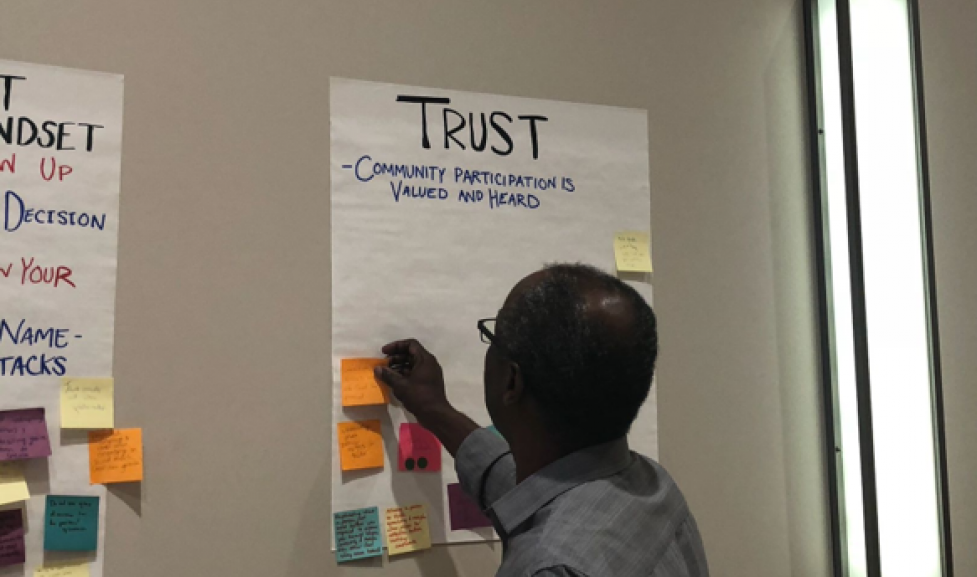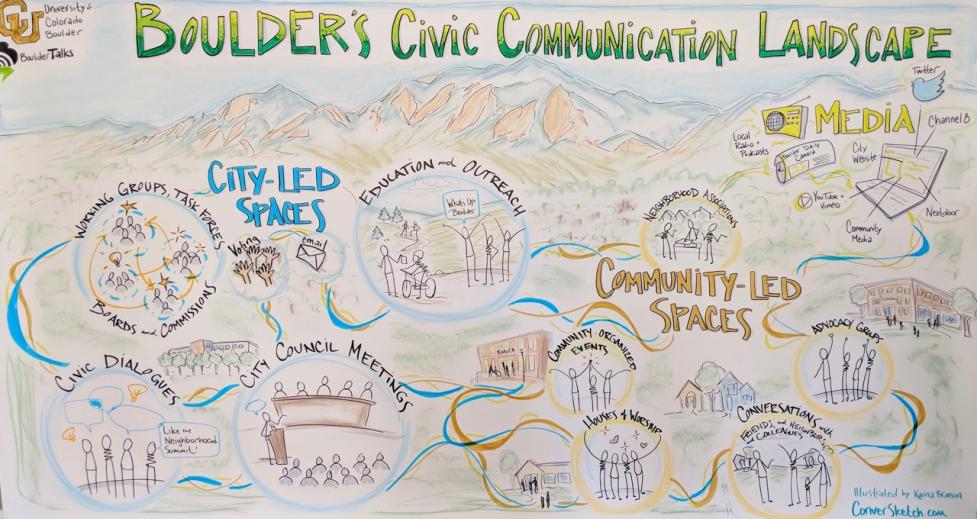- Dialogue. Speaking and listening to understand.
- Disagreement. Developing the ability for risk taking and to tolerate discomfort by engaging in disagreement.
- Personal accountability. Reflecting on our own perspectives and biases and taking responsibility for what you say regardless of intention.
- Power. Lessen power imbalances to promote inclusive participation.
- Co-creation. Share ownership and influence the process and outcome.
- Inclusive. Be intentional to gather diverse voices. Remember that everyone may have multiple identities that inform interests in unique ways. Ask who else needs to be in this conversation. Frequently consider under-represented groups such as young people, people of color, social class differences (including renters vs. property owners), different ways of thinking (cognitive diversity), and a broad political spectrum.
- Receptive and responsive. Prioritize community ideas and seek public input early in the decision-making process. Provide feedback and follow-up. Help community members understand how decisions are made, especially how public input is recognized in decisions.
- Accessible. The city uses multiple mediums and platforms to reach the community.
- Organized. Set clear expectations for meetings and other public processes.
- Fuller discussion. Explore all of the issues instead of debating narrow solutions.
This vision was developed through Building Bridges, a project that engaged community members through live and online discussions. Rather than offering a set of rules to be followed, this vision represents the ideals that we aspire to, providing common language to talk about how we aim to treat each other and what to call out when we fall short.

